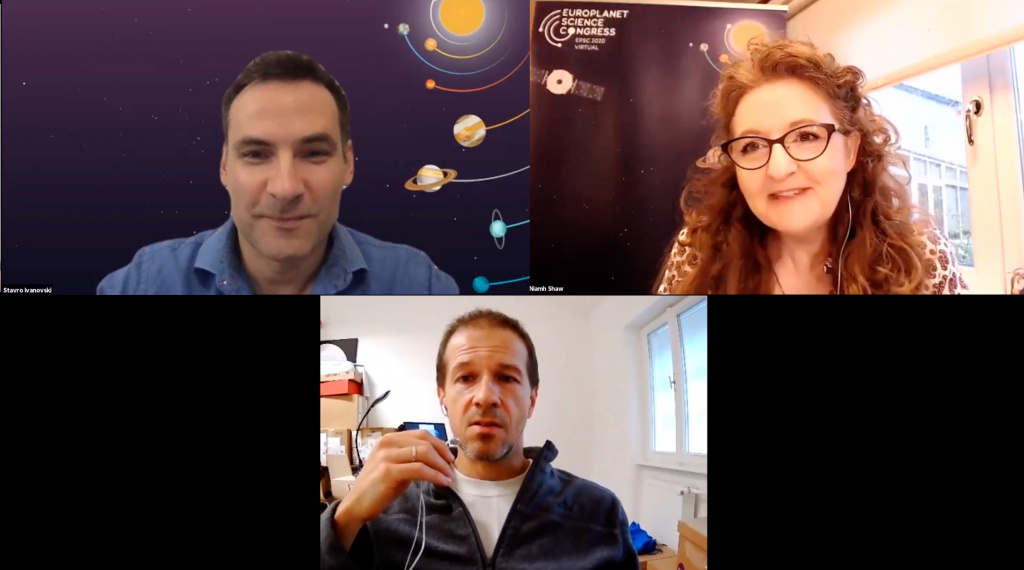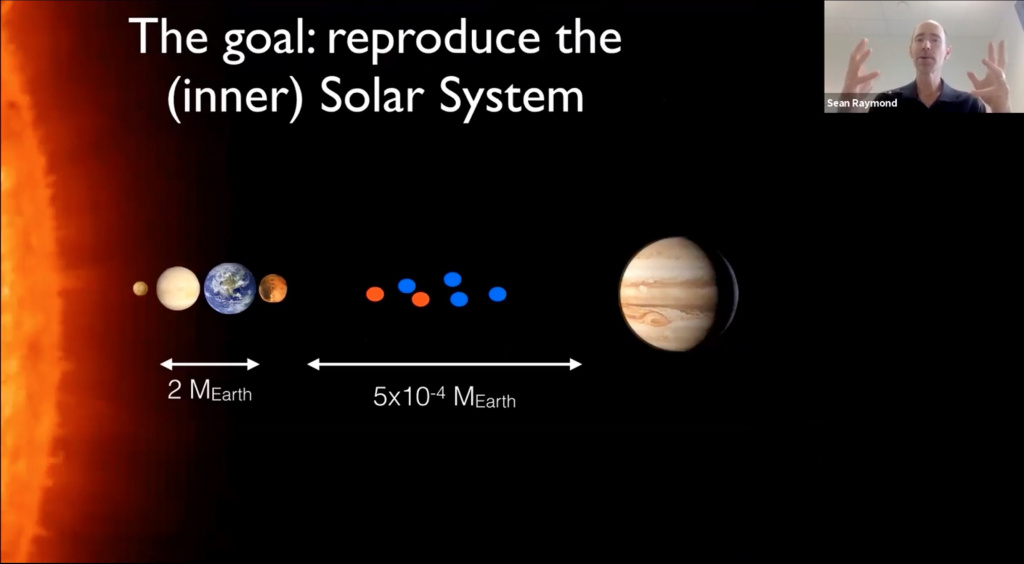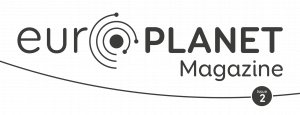Celebrating Science at EPSC2021
Stavro Ivanovski (INAF) and Akos Kereszturi (Konkoly Thege Miklos Astronomical Institute), Co-chairs of the Scientific Organising Committee (SOC), review the second virtual Europlanet Science Congress.
Read article in the fully formatted PDF of the Europlanet Magazine.
Reflecting on the feedback from the second virtual edition of the Europlanet Science Congress (EPSC) gives us an opportunity to highlight what has been achieved through another successful meeting and what we are working to improve for future EPSCs.
Established in 2006, EPSC is a scientific forum and platform for sharing planetary science, gathering both early career and experienced researchers together to share their ideas, to learn from each other, and to shape the future of planetary science.

For the 2021 virtual meeting, the conveners and the Scientific Organising Committee (SOC) compiled a comprehensive programme with the best of new planetary science discoveries, recent advances in various scientific topics, updates on space missions and the-state-of-the-art in planetary research. The scientific content of the meeting was delivered over 42 scientific sessions, 13 keynote talks, and 12 splinter meetings and workshops, which resulted in about 600 oral, 203 poster and 440 early career contributions.
The programme was as scientifically broad as possible and covered fields from terrestrial planets and space exploration missions, through small bodies, exoplanets and other planetary systems, to the contributions made by amateurs.
The keynote talks, linked to the six scientific programme groups, showcased current outstanding planetary science. Even though the virtual format lacks the interactivity that in-person meetings offer, the Virtual Organising Committee (VOC) of EPSC2021 worked hard and used feedback from last year to improve interaction among the participants, and the meeting benefited from the connection of researchers from all over the world. Feedback suggests that people particularly enjoyed that everyone had the opportunity to engage in fields outside their specific scientific area and could learn and be inspired by other colleagues’ research at their own pace and in their own time zone.

The success of EPSC relies on the voluntary efforts of hundreds of people in the organising committees and the teams of conveners, as well as the engagement of the participants. We would like especially to acknowledge the input of the conveners, as the format this year entailed significant work, not only in checking pre-recorded oral talks but also in running the live-pitch sessions and moderating the Slack channels, where proactive conveners were key to generating discussion.
Despite the increase in fees this year, which were essential to put the virtual meeting on a secure financial footing, bursaries funded through the Europlanet 2024 Research Infrastructure enabled worldwide applicants with limited resources to attend the meeting.
We are looking forward to meeting everyone in person next year at EPSC2022 in Granada. As well as offering some level of virtual access, (a clear request from the feedback), we are investigating new features to include, such as meetings with editors of top-rated scientific journals, and discussions between teams working on the same scientific problems but with competing approaches.
EPSC 2022 will take place at the Palacio de Exposiciones y Congresos de Granada, Spain from 18-23 September 2022. https://www. europlanet-society.org/epsc/


